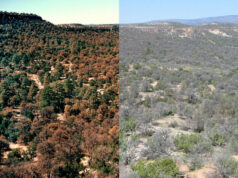Retrospection: Self-reflection of one’s own past.
Credit: Yasushi Miyashita
Researchers have pinpointed a brain region monkeys use to evaluate their ability to recall memories. To date, this metamemory process, which requires a higher level of self-reflection about our own cognition, was thought by some to be unique to humans, though this research suggests otherwise.
Here, to shed light in this space, Kentaro Miyamoto and colleagues devised a metamemory test in which macaques judged their own confidence in remembering past experiences; the animals opted for higher bets on the outcome of a memory recall test when they were surer their memory judgments were correct.
Using this setup, as well as whole-brain searches by functional neuroimaging, the researchers identified a specific region in the prefrontal brain essential for metamemory decision making. Its inactivation caused selective impairment of metamemory, but not of memory itself.
The results pave the way to further study of the neuronal underpinnings of metacognition using an animal model, where metamemory has previously been difficult to evaluate.
Find your dream job in the space industry. Check our Space Job Board »
Story Source: Materials provided by American Association for the Advancement of Science Original written by Whitney Clavin.Note: Content may be edited for style and length.
Journal Reference:
Kentaro Miyamoto, Takahiro Osada, Rieko Setsuie, Masaki Takeda, Keita Tamura, Yusuke Adachi, Yasushi Miyashita. Causal neural network of metamemory for retrospection in primates Science, 2017; DOI: 10.1126/science.aal0162











